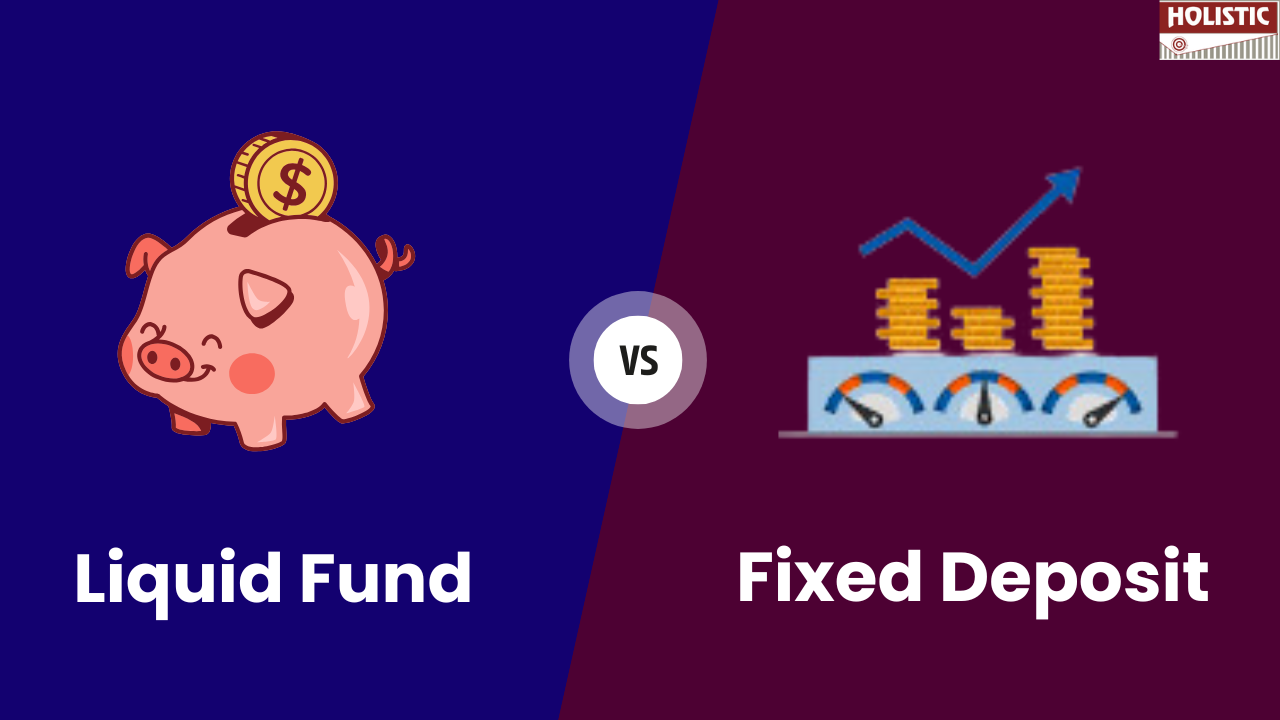TABLE OF CONTENT
What exactly is a Stock SIP?
Key Features of Stock SIP
Key Considerations Before Choosing Stock SIP
Why is investing in Mutual Fund SIPs such a smart move?
Stock SIP vs. Mutual Fund SIP: Key Differences
Tax Implications for Stocks and Mutual Funds: A Comparison
Final Takeaway
The equity financial market is now more accessible than ever, enabling retail investors to actively participate and build wealth.
But with the rise of Systematic Investment Plans (SIPs), which promote consistent and disciplined investing, many are faced with a critical question: Should you opt for stock SIPs or mutual fund SIPs?
This blog delves into the key differences between the two, their unique applications, and the potential benefits each offers.
We’ll also explore the tax implications and highlight the essential factors to consider when making this important decision. Are you ready to make an informed choice?
What exactly is a Stock SIP?
A Stock SIP, or Systematic Investment Plan in individual stocks, allows investors to invest a fixed amount at regular intervals in a particular stock.
Unlike mutual fund SIPs, where your money is spread across a portfolio of stocks, a Stock SIP focuses on one or a select few stocks. This method helps investors steadily build a position in the chosen stock while averaging the purchase cost over time.
So, how does it work? Depending on the plan, you can either invest a fixed sum periodically or purchase a certain number of shares at set intervals. But here’s the catch:
It’s up to you to use your knowledge and market insights to select high-quality stocks that have the potential to appreciate. It removes the need for timing the market, letting you invest consistently for long-term gains.
Isn’t that a more disciplined approach to building wealth?
Key Features of Stock SIP
What may make Stock SIP look like a compelling investment choice? Here are some of its standout features:
- Direct Investment: Ever wanted to own shares of a company directly? Stock SIP allows you to do just that.
- Flexibility: Why limit yourself? Enjoy the freedom to pick any stock and adjust your portfolio as you see fit.
- Market Exposure: Seeking higher returns? With greater exposure to individual stocks, you embrace both higher risk and greater growth potential.
Would you like to explore how Stock SIP fits into your investment strategy?
Key Considerations Before Choosing Stock SIP
Thinking of starting a Stock SIP? Here are some crucial factors to evaluate before making your move:
- Stock Selection: How do you choose the right stocks? It requires in-depth research on a company’s fundamentals, growth potential, and market trends.
- Risk Appetite: Are you prepared for the risks? Investing in individual stocks can be more volatile than mutual funds, so assessing your risk tolerance is key.
- Market Volatility: Can you handle market fluctuations? Stock prices can be unpredictable, and while SIP helps in cost averaging, it doesn’t eliminate risk.
- Time Horizon: Are you in it for the long run? Stock SIPs are best suited for long-term investors who can withstand short-term market swings.
- Diversification: Is your portfolio well-balanced? Relying on just a few stocks can increase risk, making diversification essential to reduce potential losses.
Can you start investing in Stock SIPs without proper guidance? Can you afford to make costly mistakes with stock SIPs and bear unexpected losses?
Why is investing in Mutual Fund SIPs such a smart move?
A SIP in mutual funds allows you to invest a fixed amount regularly in a mutual fund scheme, offering you a range of benefits that make it an attractive investment choice. So, what makes it such a good idea?
- Diversification: Mutual funds invest across a variety of stocks, bonds, or other securities, helping reduce the risks tied to investing in individual stocks. Isn’t this a safer option for managing risk?
- Professional Management: Managed by experienced professionals, mutual funds ensure that the best assets are selected for investment. For those without the time or expertise to choose individual stocks, isn’t this a huge advantage?
- Rupee Cost Averaging: With SIPs, you automatically buy more units when prices are low and fewer units when prices are high. Over time, this strategy smooths out the impact of market fluctuations. Who wouldn’t want to benefit from such a disciplined approach?
- Affordability: You can start with a small investment, making mutual fund SIPs accessible to a wide range of investors. Doesn’t that make it an ideal option for both new and seasoned investors?
- Tax Benefits: Certain mutual fund schemes, like Equity Linked Savings Schemes (ELSS), offer tax benefits under Section 80C of the Income Tax Act. Who wouldn’t want to save on taxes while building wealth?
These features combine to make SIPs in mutual funds an appealing option for those looking to grow their wealth steadily and securely.
Stock SIP vs. Mutual Fund SIP: Key Differences
When evaluating Stock SIPs versus Mutual Fund SIPs, several important distinctions come to light:
|
Feature |
Stock SIP |
Mutual Fund SIP |
|---|---|---|
|
Investment Type |
Direct investment in individual stocks |
Investment in a portfolio of stocks via a mutual fund |
|
Risk Level |
Higher, due to concentration in a single stock |
Lower, due to diversification |
|
Management |
Self-managed, requiring market knowledge |
Professionally managed by fund managers |
|
Diversification |
Low, unless multiple stocks are chosen |
High, as funds are diversified across assets |
|
Tax Efficiency |
Subject to capital gains tax and STT |
ELSS offers tax benefits under Section 80C |
|
Flexibility |
High, can modify stock selection anytime |
Limited, as it depends on the fund manager’s decisions |
Tax Implications for Stocks and Mutual Funds: A Comparison
When deciding between investing in stocks directly or through mutual funds, understanding the tax implications is crucial.
For Stock SIPs:
- Short-Term Capital Gains (STCG): If you sell your stocks within a year, you’ll pay a 20% tax on the profits you make.
- Long-Term Capital Gains (LTCG): If you hold your stocks for more than a year and make a profit exceeding ₹1.25 lakh, you’ll pay a 12.5% tax on the gains.
- Securities Transaction Tax (STT): This tax is applied on every stock you buy or sell.
For Mutual Fund SIPs:
Equity-Oriented Mutual Funds:
- Short-Term Capital Gains (STCG): If you redeem units within a year, a 20% tax is applied on the gains.
- Long-Term Capital Gains (LTCG): If you hold units for more than a year and your gains exceed ₹1 lakh, a 12.5% tax is applied.
Debt-Oriented Mutual Funds:
- Debt-oriented mutual funds bought after April 1, 2023, are always taxed as per the investor’s tax slab, regardless of the holding period.
Final Takeaway:
Both options have their merits, but for most investors, Mutual Fund SIPs offer a more balanced and reliable approach. They provide diversification, professional management, and lower risk, making them ideal for long-term wealth creation.
Unlike Stock SIPs, which require deep market knowledge and active monitoring, Mutual Fund SIPs allow investors to benefit from expert fund management without the stress of picking individual stocks.
While no SIP can guarantee fixed returns, Mutual Fund SIPs have historically delivered consistent, risk-adjusted growth over time.
For those looking for a disciplined, hands-off, and tax-efficient way to build wealth, Mutual Fund SIPs remain the smarter choice. Assess your financial goals and risk tolerance, and if needed, consult a financial advisor to ensure you’re on the right path.




